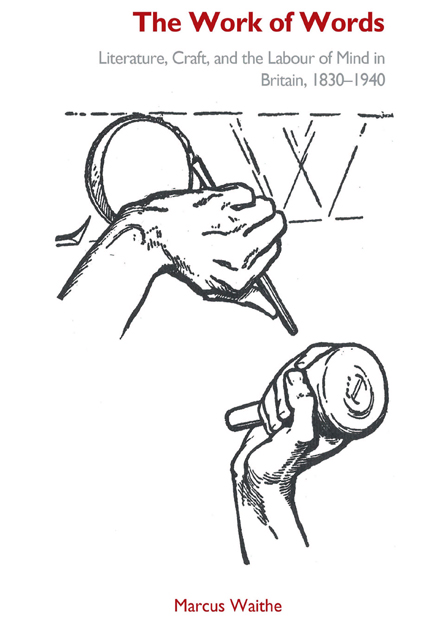Preface
Published online by Cambridge University Press: 13 April 2023
Summary
Basil Bunting’s short poem ‘What the Chairman Told Tom’ (1965) stages a one-sided exchange between a self-styled authority figure and a poet. ‘Poetry?’ the Chairman exclaims, ‘It’s a hobby’: ‘It’s not work. You dont sweat’ [sic]. The pompous tone and shifting argument lend the sense of a voice designed to bring suspicion of the arts into disrepute. At the same time, the poem puts up an uneasy sort of resistance. While the indignant query ‘How could I look a bus conductor | in the face | if I paid you twelve pounds?’ is transparently cynical, it also hangs awkwardly in the air. Tom might argue that poetry has been mischaracterised, that poetry is ‘work’ after all. But it isn’t obvious what counterclaims would convince the Chairman. Should Tom advance an alternative conception of work, one suited to the poet’s labour? Or should poetic effort be reshaped to fit an existing definition? If the first option sounds overly ambitious, the second gives too much away. Tom might defend poetry on its own terms, as something other than work; but he would do so at the risk of reducing it to a distraction, akin to the ‘model trains’ the Chairman recommends as a more wholesome hobby.
The poem addresses the vexed relationship between the value accorded to work in modern British society and the unstable basis for valuing literary endeavour. Such problems are not new: the spectre of the idle artist has haunted the terms of public debate for centuries. In 1904, W. B. Yeats wrote that ‘to articulate sweet sounds together | Is to work harder’ than to ‘scrub a kitchen pavement, or break stones’, ‘and yet | Be thought an idler by the noisy set | of bankers, school masters, and clergymen’.3 The speaker in Vladimir Mayakovsky’s ‘The Poet Worker’ (1918) complains that ‘They shout at a poet: “Why aren’t you doing a real job, working a lathe, bolt and nuts? […]”’. Yeats and Mayakovsky were writing at the end of a period during which writers sought solutions to problems of cultural self-definition. And yet, anything like Mayakovsky’s answer that ‘We smooth brains with the file of our tongue’ seems out of reach for Bunting’s Tom.
- Type
- Chapter
- Information
- The Work of WordsLiterature, Craft, and the Labour of Mind in Britain, 1830-1940, pp. ix - xPublisher: Edinburgh University PressPrint publication year: 2023



